Verdict
A versatile powered speaker system that does away with multiple boxes and adds extra convenience with Wi-Fi support. It’s a dynamic, engaging audio performance, though it’s one you’ll need to make a fair amount of space for in your home.
Pros
- Dynamic, fluid performance
- Wide range of connection options
- A degree of smarts
- Great aesthetics
- Competitively priced
Cons
- Big and heavy
- Some may wish for a HDMI port
-
Hi-res audioSupports audio files up to 24-bit/192kHz -
SmartsCompatible with Amazon Alexa -
ConnectionsConnect to TV, turntable, CD player and other sources
Introduction
Convenience and accessibility are two words that have become popular in the hi-fi world, and both apply to the Edifier’s S1000W.
Convenience in the sense that instead of multiple hi-fi boxes that eat up space like Pac-Man eats pellets; there are two boxes that do the job of many. And accessible in the sense of being able to stream directly to these speakers from a device as familiar as a tablet or smartphone.
The Edifier S1000W are much like the S2000 MkIII Bluetooth speakers I reviewed a few years ago, but the big difference is the addition of Wi-Fi, which widens the skill set considerably.
Design
- Big and heavy
- Well built
- Remote control for operation
Like the S2000 MkIII, the S1000W are not ‘small’ and certainly not ‘light’. There aren’t any details about the S1000W’s dimensions on the Edifier site but armed with a tape measure I tally the speaker to be 260mm deep, 210mm wide and 350mm tall. That’s slimmer than the S2000 but these speakers nonetheless take up space.
Once a place has been found for them, I expect these speakers won’t be moved around much as they weigh 16.77kg,. Edifier refers to them bookshelf speakers – quite frankly you’ll need a big one to accommodate these.
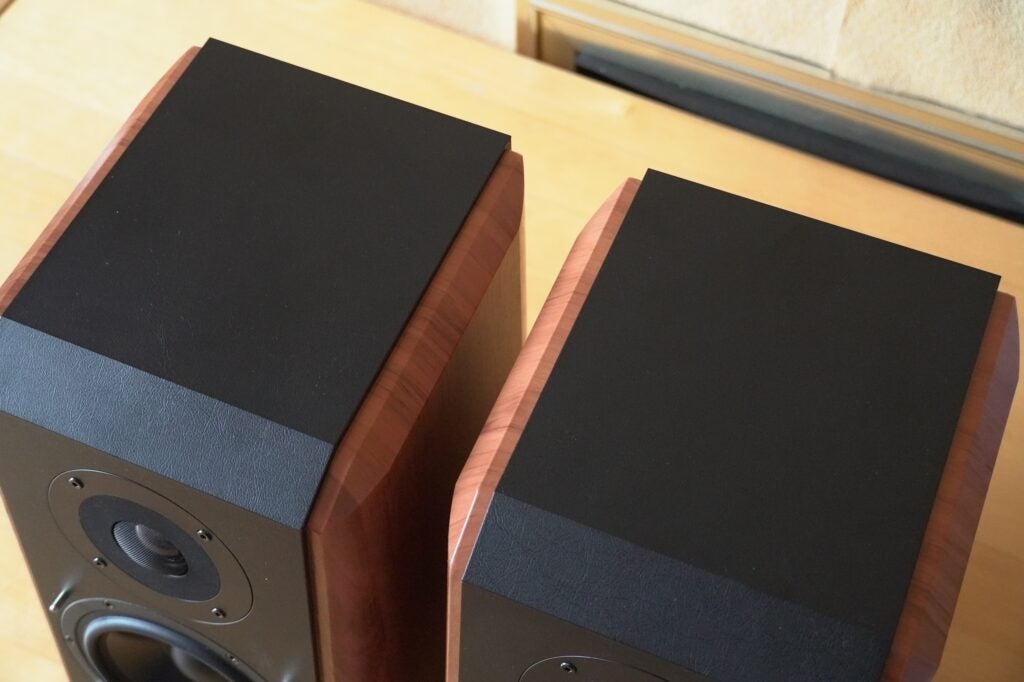
They are well-built featuring a wood side panelled finish that adds to its aesthetics. And the sloping angle of the cabinet? That’s to produce a larger sound with deep bass. The use of wood makes it easy for the speakers to slip into a living room setting, though they’d also dominate it with their size.
I didn’t use these speakers with a TV mainly because they were too big to adequately sit on my speaker stands, and if I put them on the same AV furniture as my TV, they’d block parts of the screen. Unless you have a speaker stand big enough to comfortably support them, they’re best suited with wall-mounted TVs. Around the back is a bass port that allows the speaker to manage its bass out when placed near a wall.
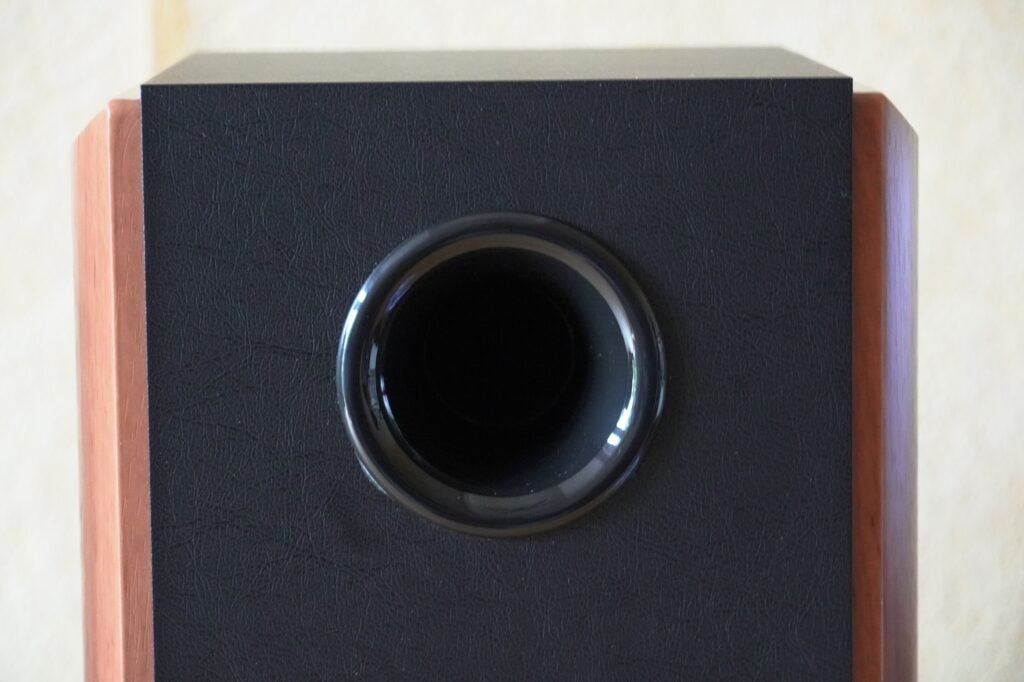
The speaker front is covered by a grille though these aren’t magnetically attached – some force is needed to pry them off if you don’t like the look. At the bottom of the ‘active’ speaker is an LED screen that displays source inputs via different coloured dots, not text. It’s not the most conveniently positioned if you’re sitting close but from further away it’s less an issue.
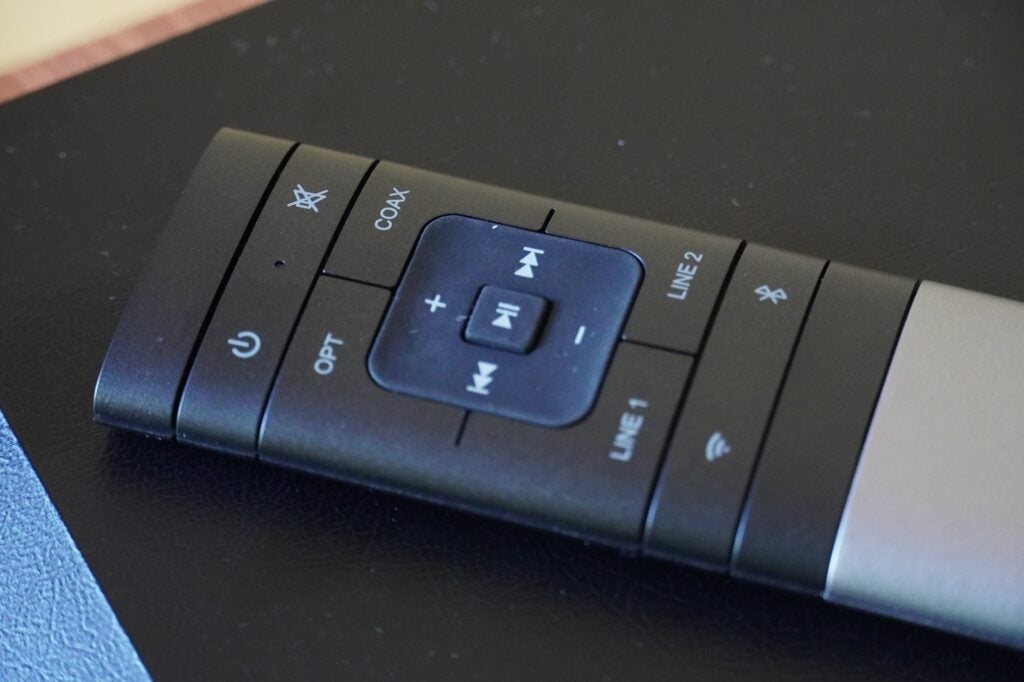
The speakers can be operated with the included remote that offers playback controls, input switching and mute capabilities. It’s ‘almost’ the same remote as the one that came with the S2000 except it ditches the EQ modes. It’s completely functional and gets the job done. A 3.5mm cable, RCA-RCA and digital optical audio cable are bundled with the speakers.
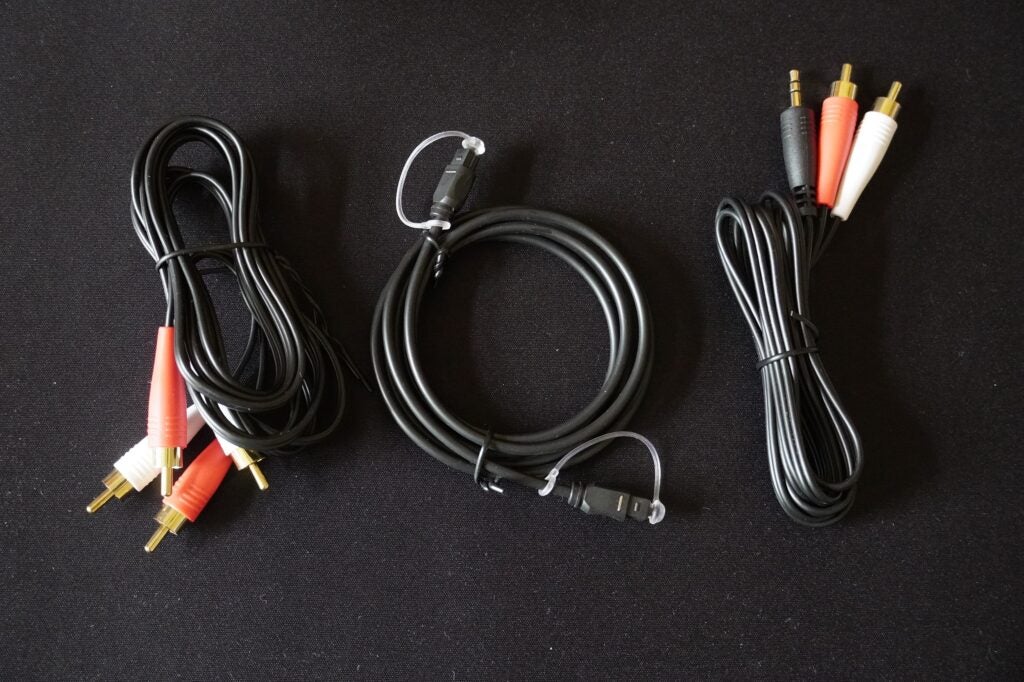
Features
- Wi-Fi and Bluetooth connectivity
- A variety of physical connections
- Works with Alexa support
The Edifier S1000W system is made up of a passive and active speaker, the active part contains the amplification that powers the system. Turn the ‘active’ speaker around and there are two RCA line outputs, a speaker out to connect to the ‘passive’ speaker (there’s no wireless connection between the two), optical and coaxial inputs, a power on/off switch and dials for managing volume, treble, and bass. There’s even a pinhole to reset if there’s an issue.
There is no HDMI port for connecting to a TV, which the (more expensive) Klipsch Five offers, though they can be connected via the optical port.
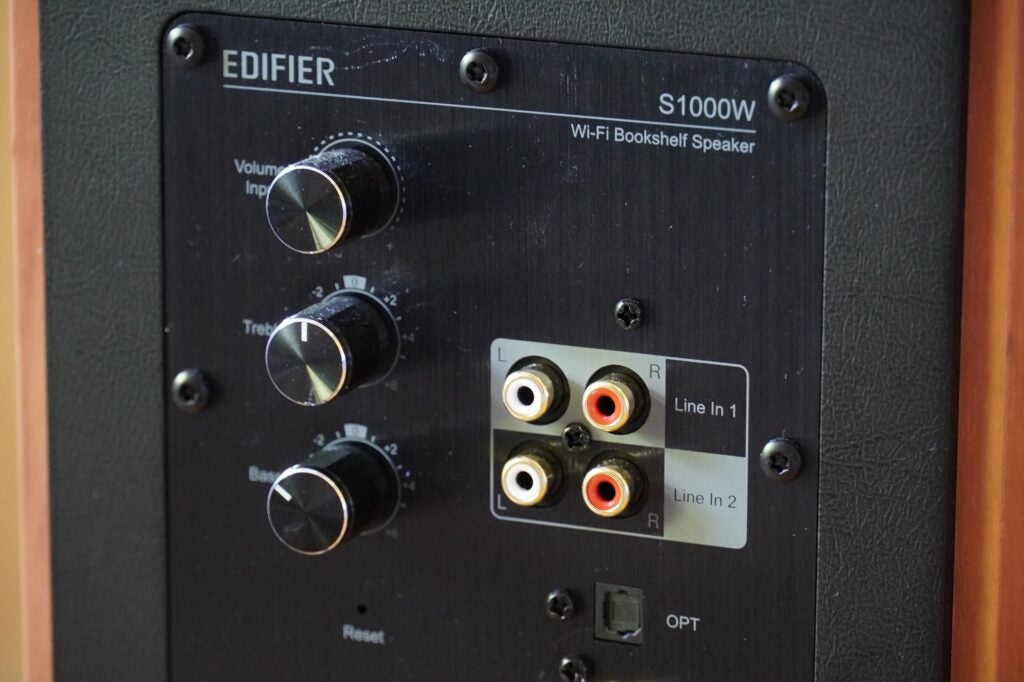
The connectivity options allow the Edifier S1000W to be plugged into other devices such as a PC, CD player, turntable, or active subwoofer. I’ve connected the Edifier to the FiiO R7 desktop amplifier via the RCA output and it performed ably.
Like the S2000 MkIII there’s Bluetooth (v5.2) but new is the addition of Wi-Fi. There’s no Hi-res support over Bluetooth as the Edifier swaps aptX-HD for AAC. However, with Wi-Fi it can support audio streams up to 24-bit/192kHz via Tidal Connect, plus there’s AirPlay 2 for iOS devices, and Spotify Connect.
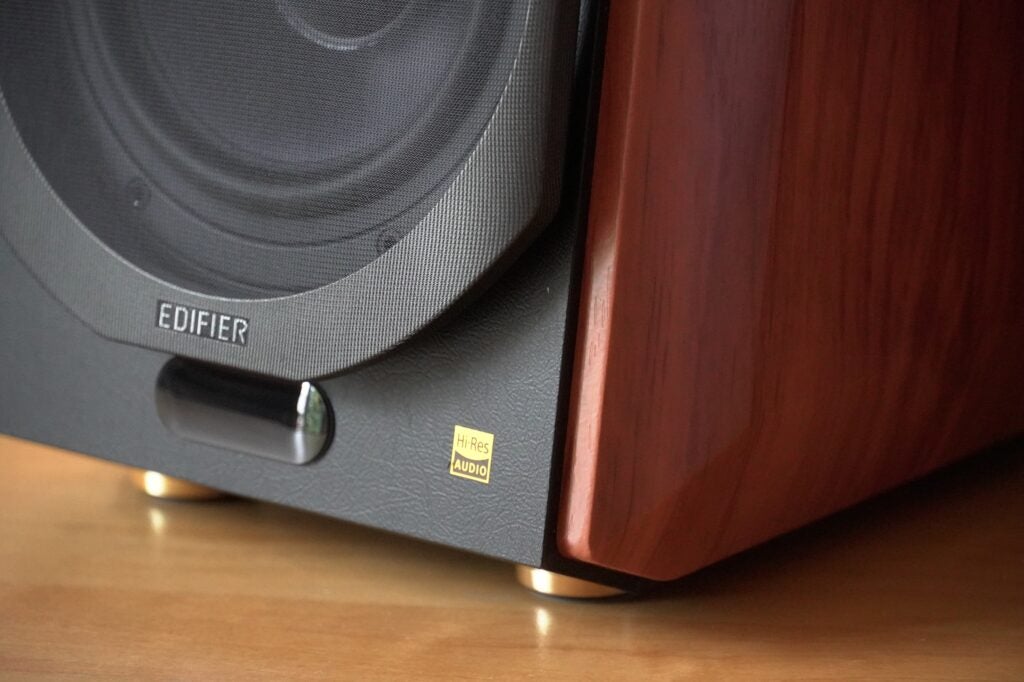
Multi-room grouping via AirPlay 2 and Alexa Multi-Room is possible, and there’s voice control through those two methods if you connect the S1000W to a compatible speaker like a HomePod mini or Amazon Echo.
Sound Quality
- Dynamic, fluid sound
- Punchy bass output
- Engaging stereo image
Featuring a 5.5-inch aluminium bass unit that covers the lows and midrange, and a 1-inch titanium dome tweeter to handle the high frequencies, the Edifier S1000W’s performance is not unlike the S2000MkIII in that it seems tuned towards the warm side of neutrality.
It’s not as rich sounding as the Q Acoustics M20 HD but doesn’t shy away from delivering punchy, hard bass. The opening track on the Ant-Man theme for ‘Quantumania’ is an exciting, energetic piece of scoring that delivers assertive bass notes, and the Edifier laps the track up with attack and dynamism.
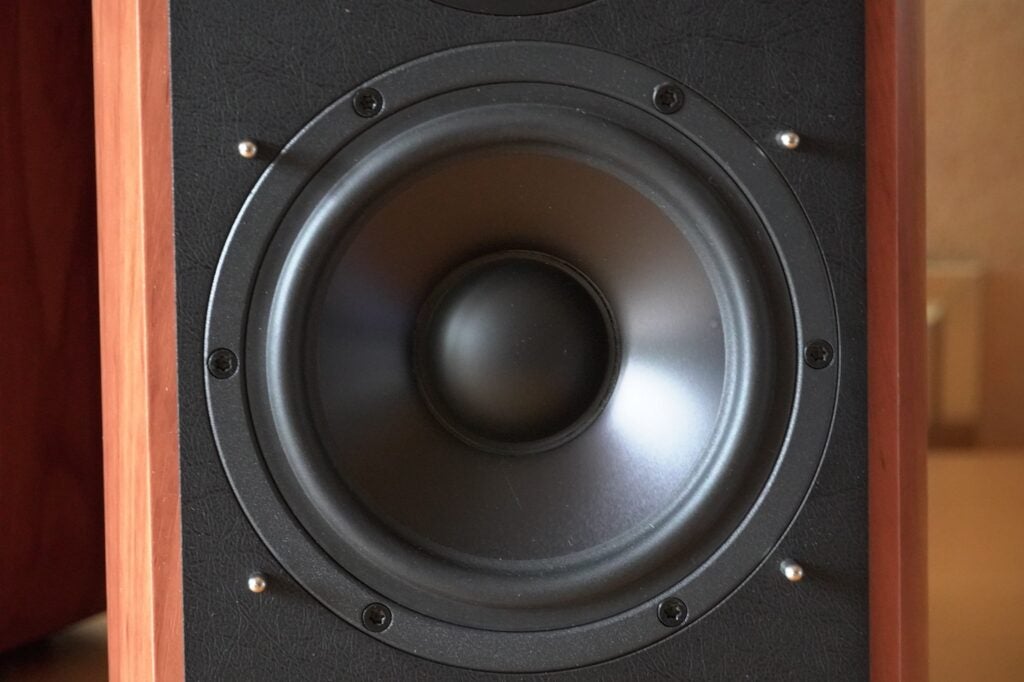
It’s an impactful listen, the trumpets in the track swell and soar, and there’s power behind the percussion, though if you’re looking for bass depth and extension akin to a subwoofer you won’t find that here. It’s a lively, punchy, and controlled bass output, but the low frequencies won’t plumb as deep as a sub.
I did note a little distortion with the low frequencies – upon closer inspection it emanated from the woofer cone. I’ve heard it while playing Hans Zimmer’s Dune, as well as in the Football Weekly podcast (AirPlay) with bassier male voices. Bass is kept in check, though, and I didn’t find it spilt into the upper frequencies.
Adjusting the bass dial didn’t have much of an impact. It may have been that the woofer was slightly askew as the distortion was only coming from the active speaker.
With GoGo Penguin’s Raven the Edifier’s attacking approach to the low frequencies is again noted, the speaker easily able to communicate the swift, rolling bass beats without becoming sloppy in terms of maintaining the rhythm. The treble in the song is relayed with clarity and a decent amount of shine too – not the brightest I’ve heard, but the Edifier describes the varied treble notes well.
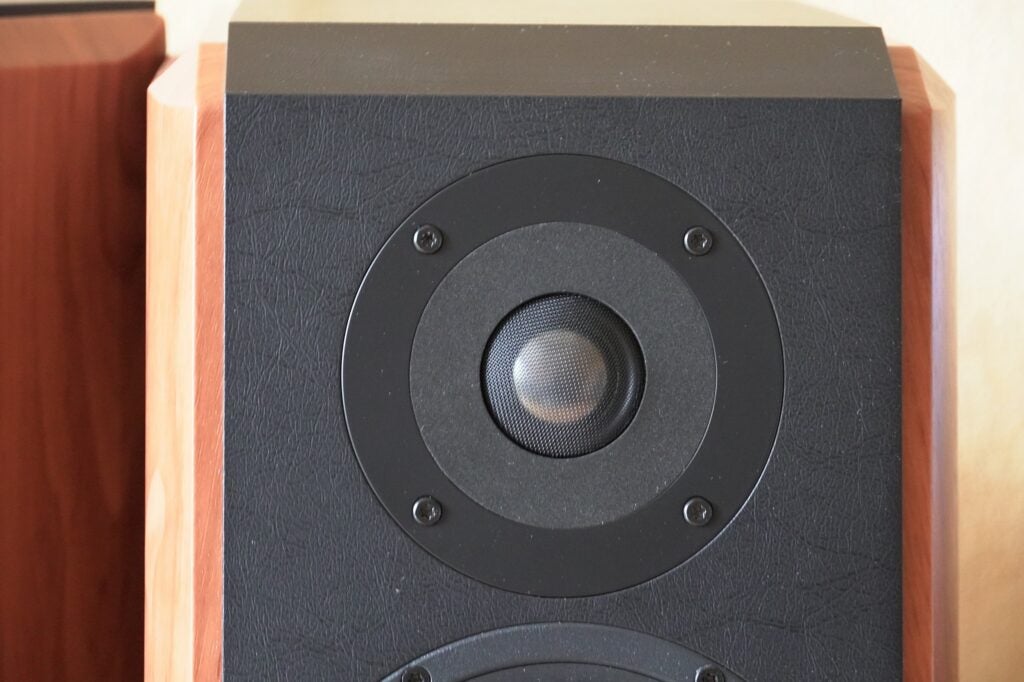
Even better is the trumpet playing by Avishai Cohen in the track Hidden Chamber, which is delivered in a clean, clear, and precise way. The cymbal crashes aren’t particularly crisp in tone but there’s a decent amount of detail in the upper midrange area, the bass is again assertively described but doesn’t dominate. With this and other tracks like Takuya Kuroda’s Everybody Loves The Sunshine, the Edifier S1000W is a flowing, harmonious performer with an agreeable sense of zest and heft to its sound.
The benefit of two speakers is a stereo image; and the Edifier S1000W’s performance with Diana Ross & Tame Impala’s Turn Up the Sunshine shows it can very create one with real depth and good placement of instruments and vocals within the big, wide soundstage it creates.
The speakers resolve the midrange with detail and clarity, though I wouldn’t say there’s a fanatical level of detail or sharpness afforded to the mids. The Edifier won’t smooth out recordings and make them perfectly so, there’s a little roughness to Noah Cyrus’ voice in Stand Still that’s intentional (I’ve heard other speakers describe her voice that way), but there are moments in a very busy track where it can sound as if the speaker is blaring at me rather than delineating the instruments with more clarity and subtlety.
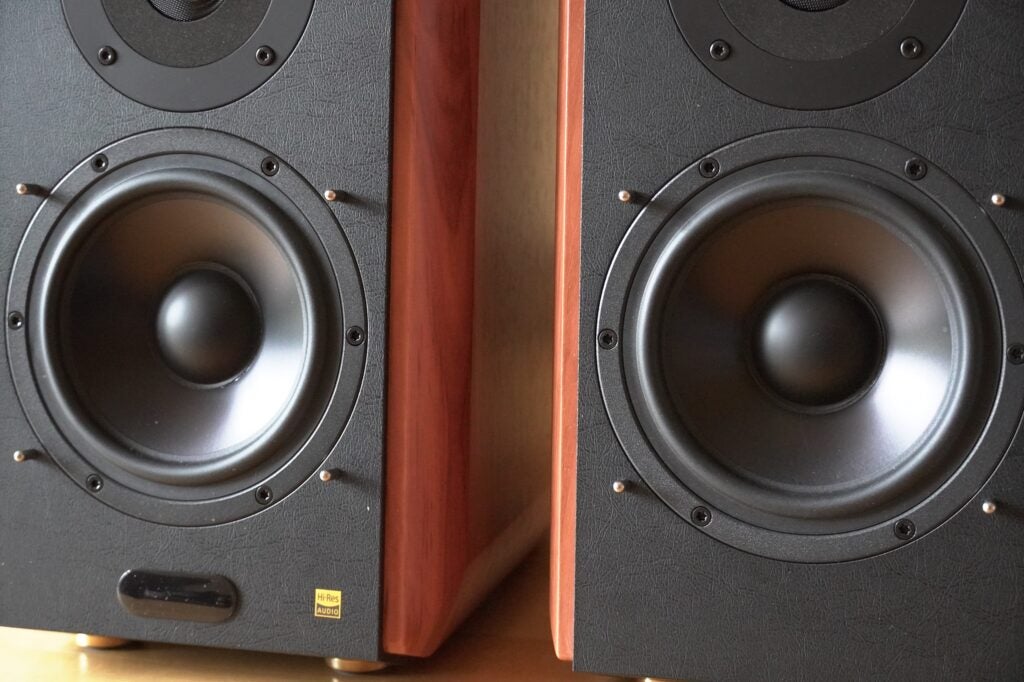
Bluetooth puts in a good performance, not quite as clear or as articulate as listening over Wi-Fi, but all the trademarks of its Wi-Fi performance: big sound, tidy organisation of the stereo image, robust bass, and dynamism, can be heard in its Bluetooth presentation.
All that said, I find the Edifier S1000W to be a very engaging speaker system. Its powerful, punchy, dynamic, and lively performer that performs well across a range of music genres. If you’ve got the space for it, it comes recommended.
Latest deals
Should you buy it?
For a lively, dynamic sound: The S1000W is perhaps not the sharpest sounding speaker but it is an undeniably fun listen, and more dynamic than the similarly price Q Acoustics M20 HD.
You’ve got a small space: While the S1000W should be able to fit into most spaces, they will need some space to strut their stuff. If space is a concern, the Ruark MR1 MkII are smaller, although not much less expensive.
Final Thoughts
There’s no shortage of active speaker systems out there from established brands such as Q Acoustics, KEF, Klipsch, and Dynaudio but I really do feel that the Edifier S1000W pair is one that can compete in terms of price and value.
It thoroughly engages with its dynamic, lively, and assertive audio performance. It could benefit from some extra lashings of midrange clarity and sharpness, but it is a fun, flowing and energetic active speaker system with a good level of versatility in the connections it offers, plus Bluetooth and Wi-Fi functionality, as well as smart functionality if you want to slide it into an Alexa-centric system. It packs a good deal of functionality into its admittedly large dimensions.
The lack of a HDMI connection might be off-putting to those in the market for a soundbar replacement, and then there is the sheer size of the speakers, which will need space to operate. Nevertheless, I feel Edifier has executed the brief very well with the S1000W, it’s an affordable, multi-talented active speaker system.
How we test
We test every wireless speaker we review thoroughly over an extended period of time. We use industry standard tests to compare features properly. We’ll always tell you what we find. We never, ever, accept money to review a product.
Find out more about how we test in our ethics policy.
Tested across several weeks
Tested with real world use
FAQs
There’s no HDMI port on the Edifier S1000W, so you won’t be able to connect it to a TV via that method. It does have an optical input, so that would be the way to connect to a TV.
‹
UK RRP
Manufacturer
IP rating
Size (Dimensions)
Weight
ASIN
Release Date
Model Number
Audio Resolution
Driver (s)
Ports
Connectivity
Colours
Frequency Range
Speaker Type
›
